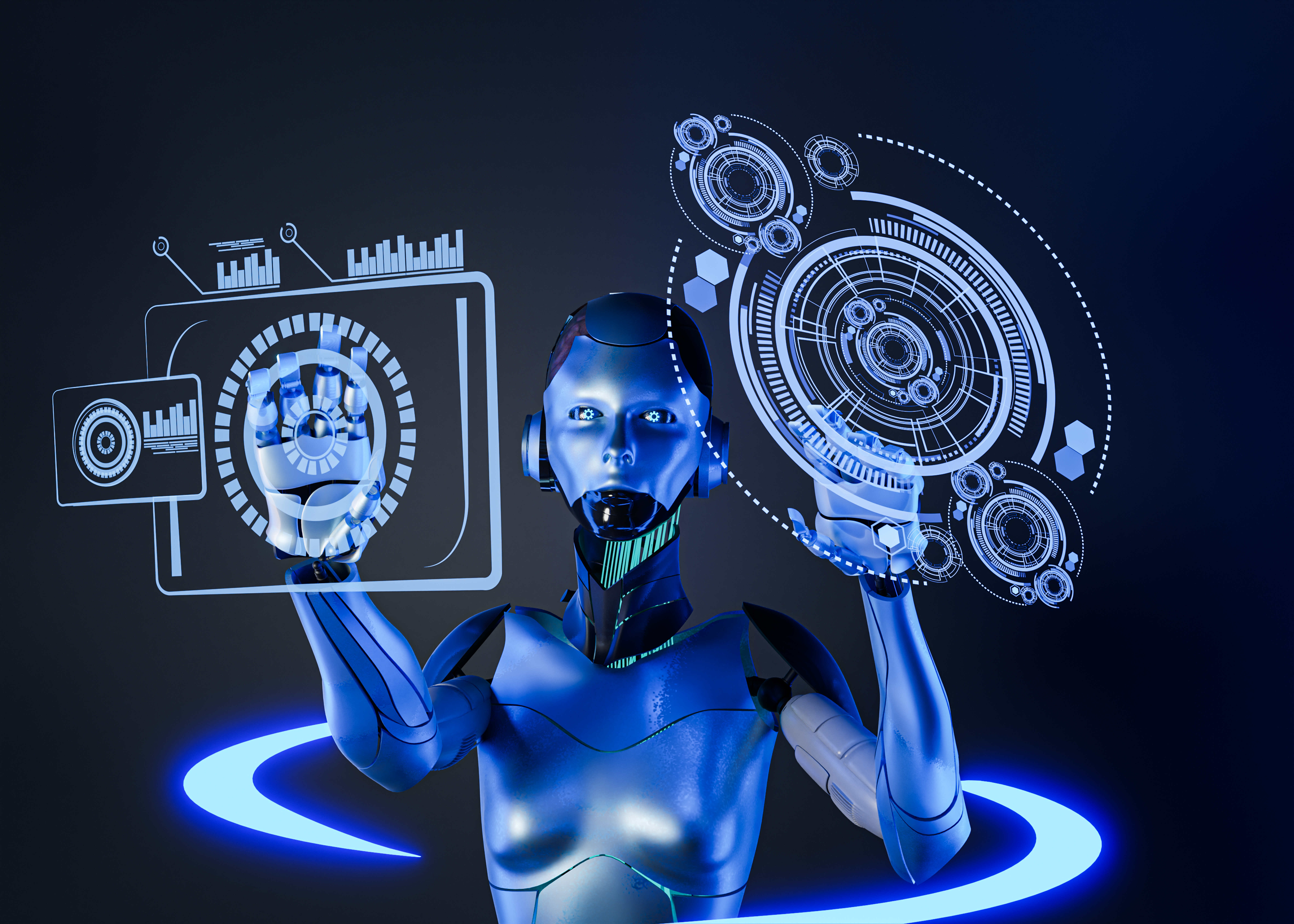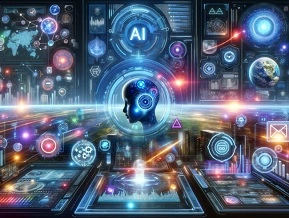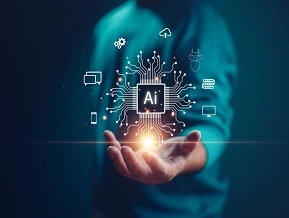What is Artificial Intelligence? A Beginner’s Guide to Understanding AI
What is AI? It’s a question that more people are asking as artificial intelligence becomes a central force in modern technology. In 2025, understanding what is artificial intelligence and how it works is no longer reserved for data scientists or software engineers. Instead, it has become a vital skill for anyone who wants to stay relevant in the ever-evolving landscape of work, learning, and innovation.
From smartphones to self-driving cars, artificial intelligence (AI) is now deeply embedded in our daily lives. It powers voice assistants like Siri and Alexa, offers movie and product recommendations, and even helps detect fraud in banking systems. This transformation affects nearly every industry—from healthcare and education to finance and entertainment.
So, What is Artificial Intelligence?
In the simplest terms, artificial intelligence refers to machines or computer systems that simulate aspects of human intelligence. These systems are capable of performing tasks that typically require human cognitive functions such as learning, problem-solving, language understanding, and visual perception.
Rather than following a fixed set of instructions, AI systems can analyze data, identify patterns, and make decisions—often faster and more accurately than a human. For example, AI can help doctors diagnose diseases from X-rays, personalize your online shopping experience, or power chatbots that provide 24/7 customer service.
What is AI Capable Of?
If you’re wondering, what is AI, think of it as an umbrella term that includes various types of intelligent technologies, each with its own set of functions:
- Machine Learning: Teaches machines to improve performance over time by learning from data.
- Natural Language Processing (NLP): Enables machines to understand and generate human language.
- Computer Vision: Helps machines "see" and analyze visual data like images or video.
- Robotics and Automation: Uses AI to perform physical tasks in manufacturing, logistics, and even surgery.
These capabilities already influence how we consume media, interact with services, and make decisions—often without us even noticing.
The Purpose of This AI Beginners Guide
This AI Beginners Guide is designed to simplify complex ideas and make them accessible to everyone. Whether you're a student exploring career paths, a professional looking to upskill, or a curious tech enthusiast, this guide offers a strong starting point.
Here’s what you’ll learn:
- The foundational principles that define AI
- The different types and categories of AI technologies
- Practical applications already in use around you
- How to start learning and using AI tools effectively
By the end of this guide, you’ll be able to confidently answer the question: "What is artificial intelligence?" and take your first steps into the world of AI with clarity and purpose.
Real-World Applications You Already Use
You don’t need a computer science degree to realize how often AI appears in your life. Consider these examples:
- Streaming Services: Netflix and Spotify use AI to recommend shows and music tailored to your preferences.
- E-Commerce: Online stores personalize your shopping experience using predictive algorithms.
- Virtual Assistants: Tools like Google Assistant and Alexa can set reminders, answer questions, and even control smart home devices.
- Healthcare: AI analyzes medical images to assist doctors in making more accurate diagnoses.
These examples highlight the practical benefits of AI—and the growing importance of understanding how it works.
Your Path Forward
This AI Beginners Guide is not just about understanding the theory behind AI; it's about giving you the confidence and direction to explore further. Today, there are countless free and paid resources—online courses, tutorials, certification programs, and community forums—that can support your journey into AI.
Whether you’re interested in programming, data analysis, ethical implications, or just how AI fits into everyday life, learning about what is AI equips you with skills and insights that are increasingly in demand.
Learn more: AI Fundamentals for Beginners
Defining Artificial Intelligence: A Beginner’s Overview
Defining artificial intelligence starts with understanding its core goal: to create systems that mimic human cognitive functions. These include learning, reasoning, problem-solving, perception, and even creativity. At its heart, AI is about enabling machines to "think" and act intelligently.
Some of the key functions of AI systems include:
- Learning from data: AI systems improve their performance by analysing historical data and recognizing patterns.
- Pattern recognition: Used in fraud detection, facial recognition, and more.
- Decision-making: AI models can suggest actions or make predictions based on inputs.
- Language understanding: NLP systems power chatbots and translation tools.
- Sensory processing: Like image recognition in security cameras or autonomous cars.
Examples of AI in action include:
- ChatGPT: A language-based model that can simulate conversation, write essays, and solve problems.
- Facial recognition: Used in smartphones, surveillance, and attendance systems.
- Autonomous vehicles: AI is critical for navigation, environment detection, and decision-making in self-driving cars.
- Language translators: AI tools that break down language barriers in real time.
AI can range from narrow AI (designed for a specific task) to more general systems (still mostly theoretical) that mimic broader human thinking capabilities.
Explore foundational concepts: AI Fundamentals for Beginners
The Building Blocks of AI: Key Concepts You Should Know
To truly understand what AI is, it’s essential to learn about the core components that make it work. These fundamental pillars form the structure of nearly all modern AI systems. Here are the most important ones:
1. Machine Learning (ML)
At the heart of AI is machine learning, which involves training computers to make predictions or decisions based on data. ML algorithms can learn from historical information, identify trends, and refine themselves over time without explicit programming.
2. Deep Learning
A powerful subfield of ML, deep learning uses layered neural networks—like how the human brain processes information. It’s what powers tools like facial recognition, text-to-speech engines, and image generators.
3. Natural Language Processing (NLP)
NLP allows machines to understand and generate human language. Chatbots, virtual assistants, voice-to-text tools, and even language translators rely on NLP.
4. Computer Vision
This field focuses on enabling machines to interpret and process visual data. It’s used in image and video analysis, medical imaging, surveillance, and more.
5. Data
No AI model functions without data. Data acts as the fuel that powers machine learning algorithms, helping systems learn patterns and make accurate predictions.
Dive deeper into these concepts: AI Courses & Certifications
Why is AI Important Today?
Artificial Intelligence is important because it is transforming nearly every major industry. From how we receive healthcare to how we shop online, AI is behind the scenes making systems faster, smarter, and more personalized. The adoption of AI is leading to massive efficiency gains, new product innovations, and the automation of repetitive or complex tasks.
Here are some examples of AI’s importance across industries:
- Healthcare: AI assists in early diagnostics, treatment recommendations, drug discovery, and medical imaging.
- Finance: Detects fraud, automates transactions, and personalizes customer service.
- Education: Delivers personalized learning through adaptive platforms and intelligent tutoring systems.
- Retail & Marketing: Predicts consumer behaviour, recommends products, and optimizes pricing.
- Transportation: Enhances traffic systems, powers self-driving vehicles, and improves logistics.
In the job market, AI is opening doors to entirely new professions and reshaping existing ones. Roles like AI Specialist, Data Scientist, Automation Engineer, and Prompt Engineer are seeing explosive growth.
Understanding the significance of AI also means recognizing the ethical questions it raises—from algorithmic bias to job displacement and data privacy.
Explore future-proof career paths: Careers in Artificial Intelligence
How Does AI Impact Everyday Life?
AI in daily life is more common than most people realize. You likely interacted with AI before you even finished breakfast, scrolling your social feed, receiving weather alerts, or getting a music recommendation. AI is now integrated into personal technology, home automation, entertainment, shopping, and communication.
Here are some everyday uses of artificial intelligence:
- Voice Assistants: Siri, Alexa, and Google Assistant help you manage your schedule, control smart devices, and answer questions.
- Streaming Recommendations: Netflix and Spotify use machine learning to suggest content based on your viewing or listening habits.
- E-commerce: Platforms like Amazon use AI for product recommendations, dynamic pricing, and customer service via chatbots.
- Navigation: Apps like Google Maps use AI to suggest routes, predict traffic, and update ETAs.
- Social media: AI algorithms decide what content appears in your feed based on engagement patterns and interests.
The better you understand how AI affects your daily routine, the more confident you’ll be in using it intentionally and responsibly.
Learn more: AI in Daily Life – What Beginners Should Know
Getting Started with AI: Tools & Resources for Beginners
If you're wondering how to learn artificial intelligence from scratch, the best way to start is by exploring AI tools for beginners. These platforms require little or no programming and provide a hands-on introduction to AI concepts. Whether you're building your first chatbot or training a simple model, these tools make it easy to get started.
Top beginner AI tools include:
- Google Teachable Machine: Train models using images, sounds, or poses—no code required.
- ChatGPT: Use conversational AI to brainstorm, automate responses, or create content.
- Kaggle: Practice using real-world datasets and participate in AI challenges.
- Google Colab: Run Python-based machine learning code directly from your browser.
- Runway ML: Build creative projects like AI-generated videos or artwork.
These platforms are ideal for:
- Students looking for AI project ideas
- Professionals exploring no-code automation
- Educators designing AI-based assignments
Start here: AI Learning Resources
Recommended Beginner Courses to Understand AI Basics
If you're serious about building a foundation in AI, structured learning is essential. These beginner AI courses are specifically designed to teach the core concepts in a way that’s engaging and accessible—even if you have no technical background.
Some of our most popular beginner courses include:
- Introduction to AI and Machine Learning: Understand core principles and algorithms
- AI for Non-Technical Professionals: Explore how AI applies to your industry
- Fundamentals of Neural Networks: Dive into the basics of deep learning and backpropagation
- AI for Daily Use: Learn how to use AI tools for work, school, or business automation
- Practical AI Projects: Build real-world projects to reinforce what you’ve learned
Each course includes videos, examples, quizzes, and optional certificates to showcase your new skills.
Browse the full catalogue: AI Courses & Certifications
Blogs to Deepen Your Understanding of AI
Alongside formal learning, reading AI blogs for beginners can give you valuable context, real-life examples, and current trends in artificial intelligence. Our expert-written articles are designed to simplify technical concepts and keep you informed about how AI is evolving.
Top recommended blog reads include:
- The Evolution of Artificial Intelligence: Trace the history of AI from Alan Turing to ChatGPT
- Debunking AI Myths: Understand what AI can and can’t do—and why the hype matters
- Ethical AI: Explore fairness, bias, and responsible use of intelligent systems
- Future Trends in AI: Get ahead with insights on what’s next in the world of automation and intelligent software
Read more: AI Learning Blogs
Final Thoughts: Embrace the AI Revolution
The question isn’t whether AI will shape the future—it’s whether you’ll be ready for it. Fortunately, learning artificial intelligence for beginners is more accessible than ever. With the right tools, courses, and mindset, anyone can start learning AI today.
At LearnArtificialIntelligence.ai, we’ve built a learning ecosystem designed to take you from absolute beginner to confident AI user. Whether you want to boost your resume, automate tasks at work, or prepare for a new role in the AI economy, we’re here to support your journey.
Start now: Explore Beginner-Friendly AI Courses












